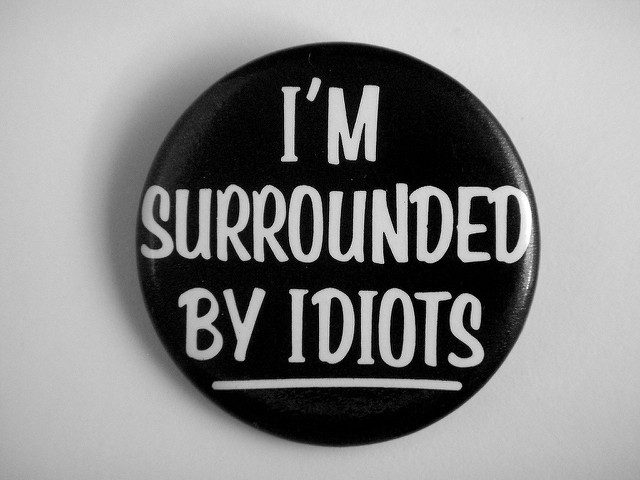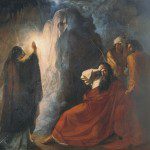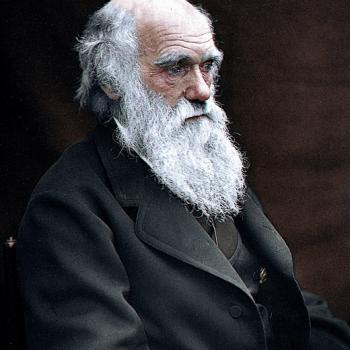
Photograph by JD Hancock (5-17-09) [Flickr / CC BY 2.0 license]
***
“daniel” wrote underneath my post, Cause of the Big Bang: Atheist Geologist Challenged:
*****
Science is a matter of falsifiable evidence. Religious views are non-falsifiable. They are two fields of differing worlds using approaches of different vocabulary and idioms.
Philosophically, Western theological proofs are good examples of the non-falsifiable kind; no one can disprove them.
One last significant point: the fields of the sciences are open to development and change as more information and more interpretation takes place.
While the same is true with religions, no religion today is the same as it was 1000 years ago, the religious thinker must answer according to an agenda.
Aquinas and most, perhaps all, of religious philosophers simply were and are not open to where the question would lead them, whereas a scientist has to be open to where the evidence will lead her regardless of her expectations.There are examples of frustration among scientists who could not figure out why the data came out a certain way. There are also many examples among theologians who worked to show how the world must be a certain way regardless.
My reply:
1. It’s not true that religious views are entirely non-falsifiable. It’s only partially true. Christianity would have been disproven if the body of Jesus were discovered, or if it was proven that the Resurrection and appearances afterward were faked. There are prophecies that were verified by actual events. These could be debunked or shown to be false. There are all sorts of archaeological evidences of the historicity of the New Testament. If these were refuted it would suggest that the NT wasn’t inspired, etc. One could try to cast doubt on the NT manuscripts, but they are more supported, by far, than any ancient document.
2. But science is not completely a matter of falsifiable evidence, too, because it must start from axioms that are themselves non-empirical. If it doesn’t assume those, it never gets off the ground. The scientist simply places faith in such things as the trustworthiness of our senses as the observers of scientific experiments and other evidences. He assumes that the universe is orderly and operates by various laws of science. He assumes the principle of uniformitarianism (e.g., as in geology).
3. There are plenty of examples of excessively dogmatic science, such as the Piltdown Man hoax, phrenology, Lamarckianism and Lysenkoism, eugenics, Nazi “science”, even up to various nefarious activities today having to do with climatology. Thomas Kuhn, in his Structure of Scientific Revolutions gives many examples of dogma being retained long after a paradigm shift: such as geocentrism holding on in light of the superior heliocentrism, or Newtonian physics being reluctant to yield to relativity and Einstein. Stephen Jay Gould wrote eloquently about the dogma of gradualism in evolution refusing to give way to the facts of the fossil record (the “jerkiness” of his own theory: punctuated equilibrium). Astronomers in the 16th-17th centuries were neck-deep into astrology (including Galileo), whereas the Church and figures like St. Augustine and St. Thomas Aquinas had always basically opposed it as pseudo-science and quackery. St. Robert Bellarmine also had a more correct notion of the scientific method than Galileo did.
4. Why should anyone believe that falsifiability and empiricism are the be-all and end-all of knowledge: as if there are no other types of legitimate knowledge? I’ve written about this:
Dialogue with an Agnostic: God as a “Properly Basic Belief”
Non-Empirical “Basic” Warrant for Theism & Christianity
5. Atheism — closely examined — requires (I would contend) far more faith than Christianity:
Atheism: the Faith of “Atomism”
Clarifications Regarding My Atheist Reductio Paper
I could go an and on about these matters in great detail, but all my writings along these lines are collected on my Atheism and Science & Philosophy web pages.
*****
“daniel” counter-replied in the initial combox.












